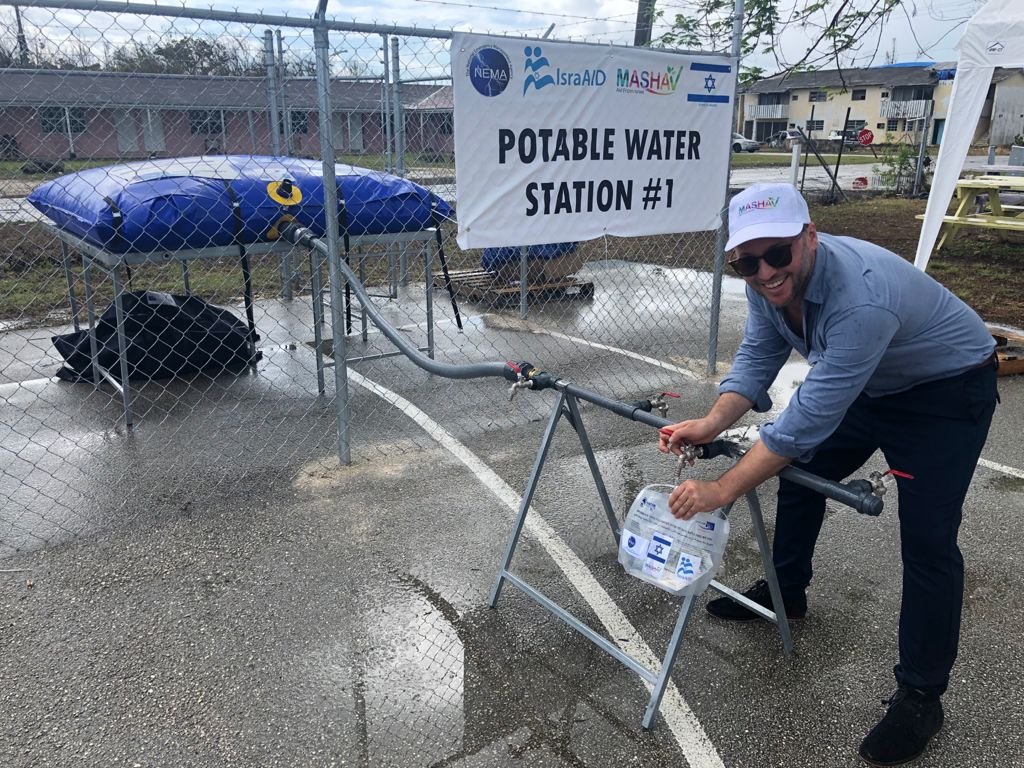GRAND BAHAMA, BAHAMAS — The State of Israel and the non-profit organization IsraAID concluded a nearly two-year water management intervention on Grand Bahama last week.
The joint intervention began immediately after Hurricane Dorian hit Grand Bahama and Abaco and was aimed at meeting the needs arising due to the contamination of aquifers with seawater.

Nearly two years on, communities in The Bahamas are still struggling with damage dealt by Hurricane Dorian, which severely affected the lives of thousands.
The immediate aftermath of the storm, which saw major contamination of water reservoirs with seawater, exacerbated the need for sustainable water management solutions.
The State of Israel, through MASHAV — its agency for international development cooperation; the Israel Water Authority; and IsraAID, set up a potable water distribution system, which was based on the Israeli Water Authority emergency model.
Later on, in close collaboration with Bahamian authorities, Israel governmental experts and IsraAID professionals conducted various needs assessment missions to Grand Bahama and Abaco, during which they conducted trials and observations, creating the basis for long-term recommendations and an action plan.
From 2020 to 2021 and together with the Grand Bahama Port Authority (GBPA) and the Water and Sewerage Corporation (WSC), IsraAID has developed and constructed a sustainable groundwater management program to improve the overall water management scheme in The Bahamas.
This was achieved, among others, by building local professional capacity, improving infrastructure on the ground and ensuring continued access to safe, disaster-resilient water sources.
The sustainable groundwater management program is set to benefit over 70,000 people, providing residents of Grand Bahama (52,000 people) and Abaco (18,000 people) with long-term groundwater monitoring and management mechanisms, ensuring the local water authorities can deliver safe, reliable and disaster-resilient water sources. This program has been completed thanks to the generous support of the United Methodist Committee on Relief (UMCOR).

During the closing event, Yotam Polizer, IsraAid CEO, stressed the importance of working jointly with local communities in The Bahamas to achieve sustainable goals that will benefit the Bahamian people in the future.
He reiterated IsraAid’s longstanding commitment to the Caribbean region and specifically to The Bahamas.
Polizer expressed his gratitude to the Embassy of Israel, UMCOR, the IsraAID team on ground and the local water authorities for their dedication to the project.
The country director of IsraAID, Dmitry Medlev, stressed that the program will help thousands of beneficiaries “through infrastructure and capacity building rooted in the local community”.
Furthermore, Deputy Chief of Mission at the Embassy of Israel in Mexico accredited to The Bahamas Nadav Goren emphasized that this ongoing collaboration “comes on the backdrop of a strengthening of bilateral ties between Israel and The Bahamas in recent years”.
“This includes, among others, a first-of-its-kind high-level political dialogue; fruitful discussions in multinational arenas; technical cooperation in areas such as agriculture, education and health; as well as humanitarian intervention,” Goren said.






